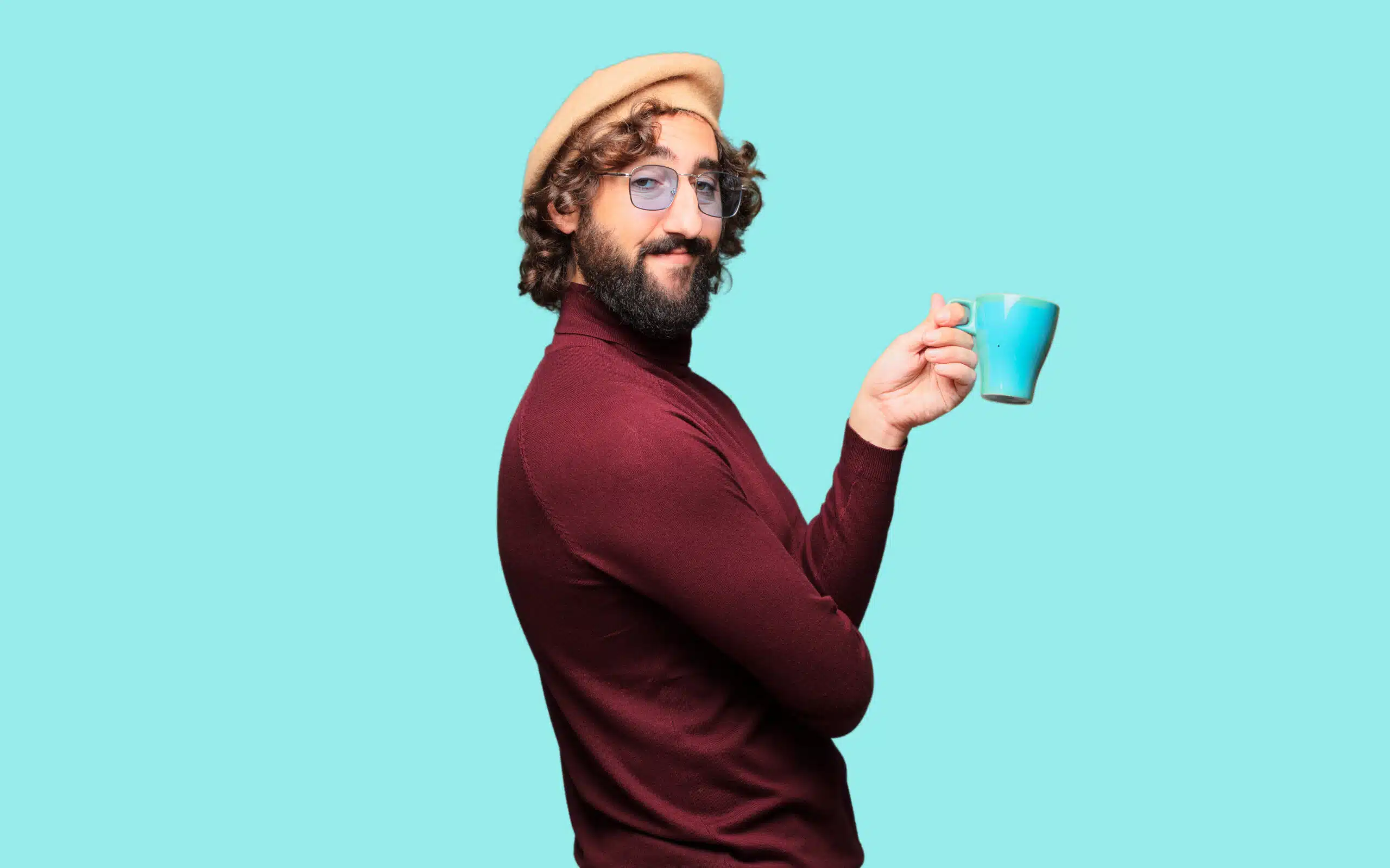
17 (And a Half) Fascinating Coffee Facts
Many people enjoy a good cup of coffee but few know about the rich history and interesting facts behind it. But you are different. You know that there is more to coffee than just water and beans. That’s why you’re here. In this post, you will learn about famous people who loved coffee, the political history of coffee, coffee science, and much more. We hope you enjoy these fascinating coffee facts.

#1 – Coffee has inspired some of the great musicians and composers.
Johann Sabastian Bach composed the humorous Coffee Cantata which speaks about his coffee addiction. One line of the piece goes, “If I couldn’t, three times a day, be allowed to drink my little cup of coffee, in my anguish I will turn into a shriveled-up roast goat.”
#2 – Coffee cools 20% slower if it has cream in it.
Coffee purists are going to hate this one but it has been scientifically proven [1] that coffee stays warmer with creamer. Cream tends to increase the density of the drink allowing it to retain its warmth for slightly longer.
#3 – Some coffee bean processes include digestion by an animal.
So you really like that cup of coffee? You think it’s really smooth? Well that might be because it was already partially digested. Yes, it’s true. Some coffee beans including Kopi luwak coffee [2] and Black Ivory coffee [3] are fed to civet cats and elephants respectively and then picked from their droppings. This process helps to remove some the acidity of coffee making it much smoother. These types of coffee are very expensive and one cup can go for as much as $80! Please note that while Black Ivory coffee has worked hard to merge ethical responsibility with their business model, Kopi luwak coffee is widely regarded as having mistreated and abused many civets [4].
#4 – Coffee has been thought to have mystical origin.
The Oromo people believed that a coffee tree planted on the powerful sorcerer’s grave would be watered and grow from the tears that the god of heaven would shed over the dead sorcerer.
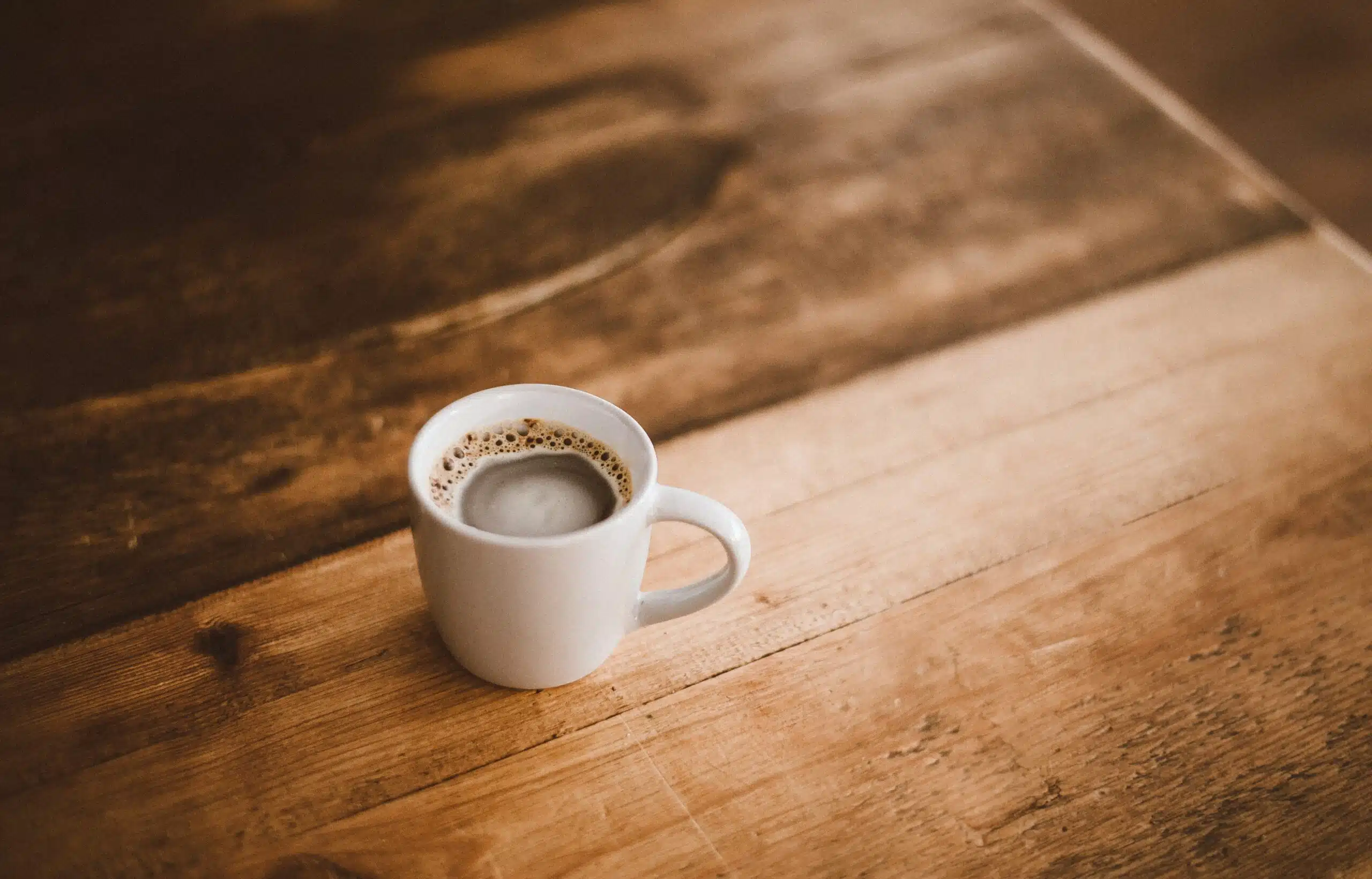
#5 – Finland drinks the highest of percentage of coffee per capita.
Americans have often been thought to drink an inordinate amount of coffee but when compared to Finland, the US is put to shame. While Americans drink 4.2 kg per capita, Finns drink on average 12 kg per capita. That’s almost three times more than the US!
#6 – Coffee has been banned by political leaders.
Within the Muslim world, coffee houses became a popular meeting/social place. In Mecca, leaders were worried that these gatherings would become political and so banned both coffee houses and coffee itself between 1512 and 1524.
#7 – Coffee has been featured in paintings throughout history.
Many people claim that coffee is an art. It turns out, they are actually right. Many famous painters throughout history have featured coffee and coffee houses in their artwork.
#8 – Coffee has been prohibited within some faiths.
For a while, Jewish people refrained from drinking coffee on the Passover due to a controversy over whether or not coffee was a legume. After being petitioned by Maxwell House, a rabbi in 1923 put this discussion to rest by declaring coffee to be a berry rather than a seed. Other religious groups such as Mormons and Seventh Day Adventists also avoid drinking coffee.
#9 – Coffee is sustaining America’s favorite drug addiction: caffeine.
Americans love caffeine. 90% of Americans consume caffeine and over 50% consume more 300 mg per day. 70-90% of this caffeine consumption is from coffee and tea.
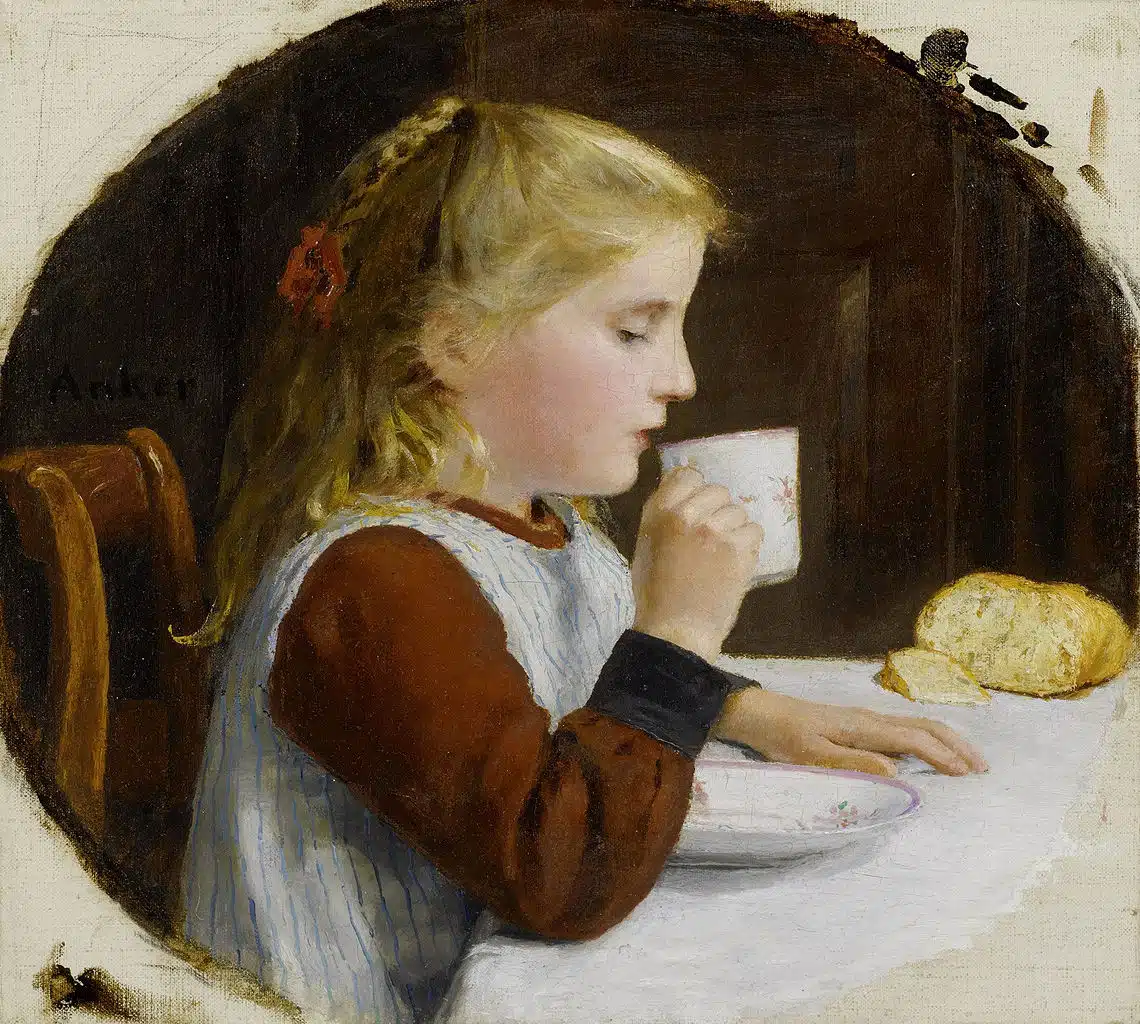
#10 – Decaffeinated coffee helps support the soda industry.
All of us know about decaffeinated coffee and some chosen few of us actually like it. But did you know that decaf coffee is helping to produce soft drinks. Soft drink companies need caffeine for their sodas and while it does grow on trees, it’s not very practical to gather. Enter decaffeinated coffee. Some coffee companies sell the caffeine they extract from beans to soft drink companies for their sodas.
#11 – Americans spend on average $1,092 on coffee every year.
Americans love their coffee although maybe not as much as the Finns (see #5). An average resident of the United States spends approximately $1,092 dollars on coffee per year. If you’re ever feeling a little strapped for cash, you might want consider cutting something else out of your budget like food. But not coffee. Never coffee.
#12 – Only two US states produce coffee.
While Americans may drink a lot of coffee, they don’t grow very much of it. The only two states that actually produce coffee are California and Hawaii. This mainly has to do with the climate of most of the US. Coffee plants grow best at high altitudes with well-defined rainy and dry seasons.
#13 – In colonial America, drinking coffee was a political action.
In the days when America was still ruled by Britain, one of the big political issues of the day was taxes (no surprise there). One commodity taxation that Americans were especially not impressed with was tea. So, in order to protest the tax on tea, many Americans switched to drinking coffee.
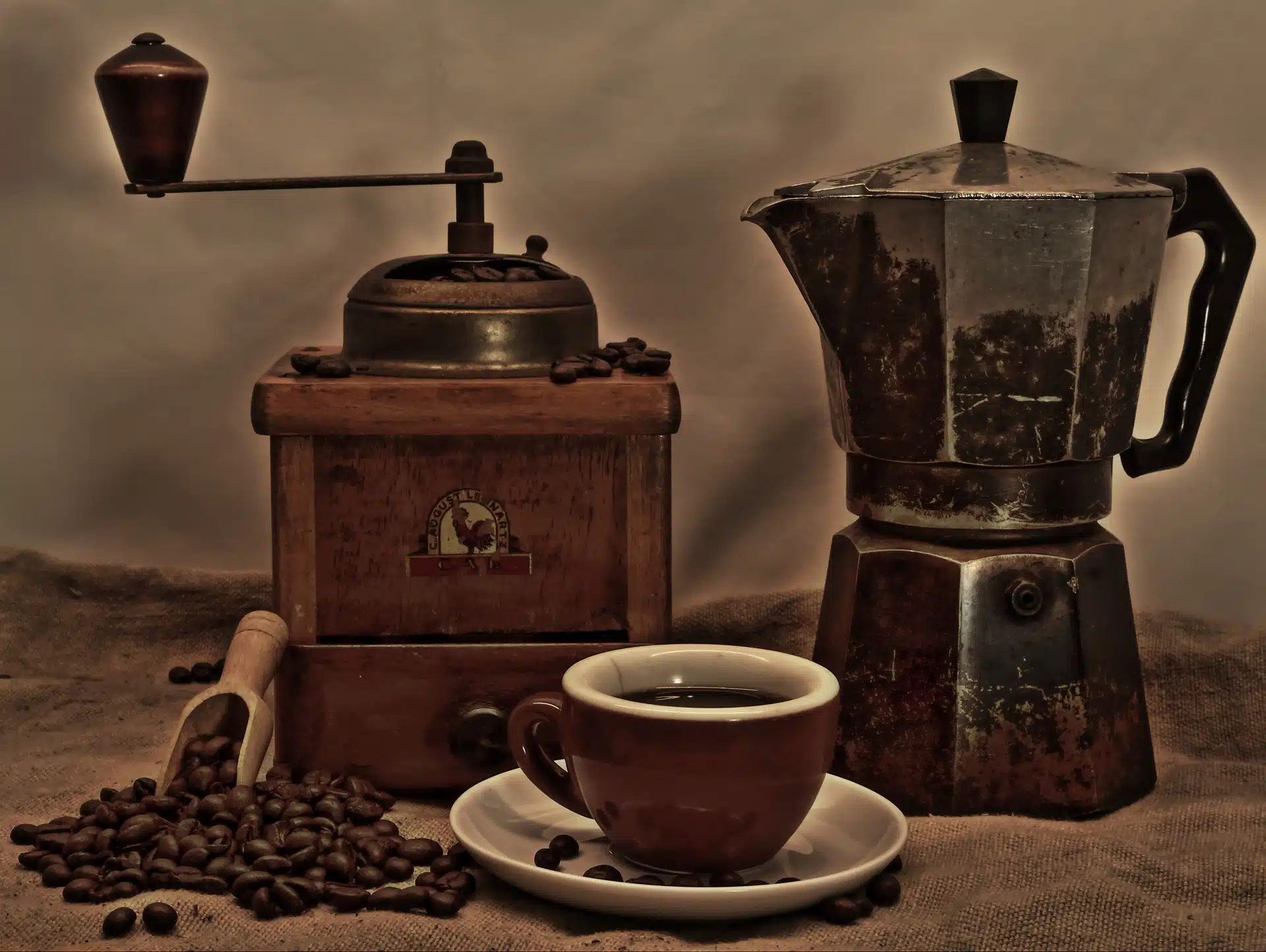
#14 – Beethoven was a great composer as well as a coffee snob.
Ludwig van Beethoven is well known for all of the beautiful music that he composed. But one lesser known fact about Beethoven was that he was a real, honest-to-goodness coffee snob. He developed a coffee recipe which involved always counting out exactly 60 coffee beans, and sometimes recounting to make sure that the right amount was always there.
#15 – Coffee is the second largest commodity product behind only oil.
Everyone loves coffee. And when I say everyone, I mean everyone (even plants). Coffee is the second largest commodity product in the world and is valued at over $100 billion annually. Millions of people rely on it as their source of income in one way or another. So keep drinking all that coffee. You’re in good company.
#16 – In Turkey, insufficient coffee was once considered grounds (Ha! Get it?) for a woman to divorce her husband.
In Turkey during the 15th century, a law was passed that allowed a woman to divorce her husband if he did not provide her with enough coffee. This was due to the fact that coffee had become such a deep part of culture in Turkey that to not have it would effectively turn you into a social outcast.
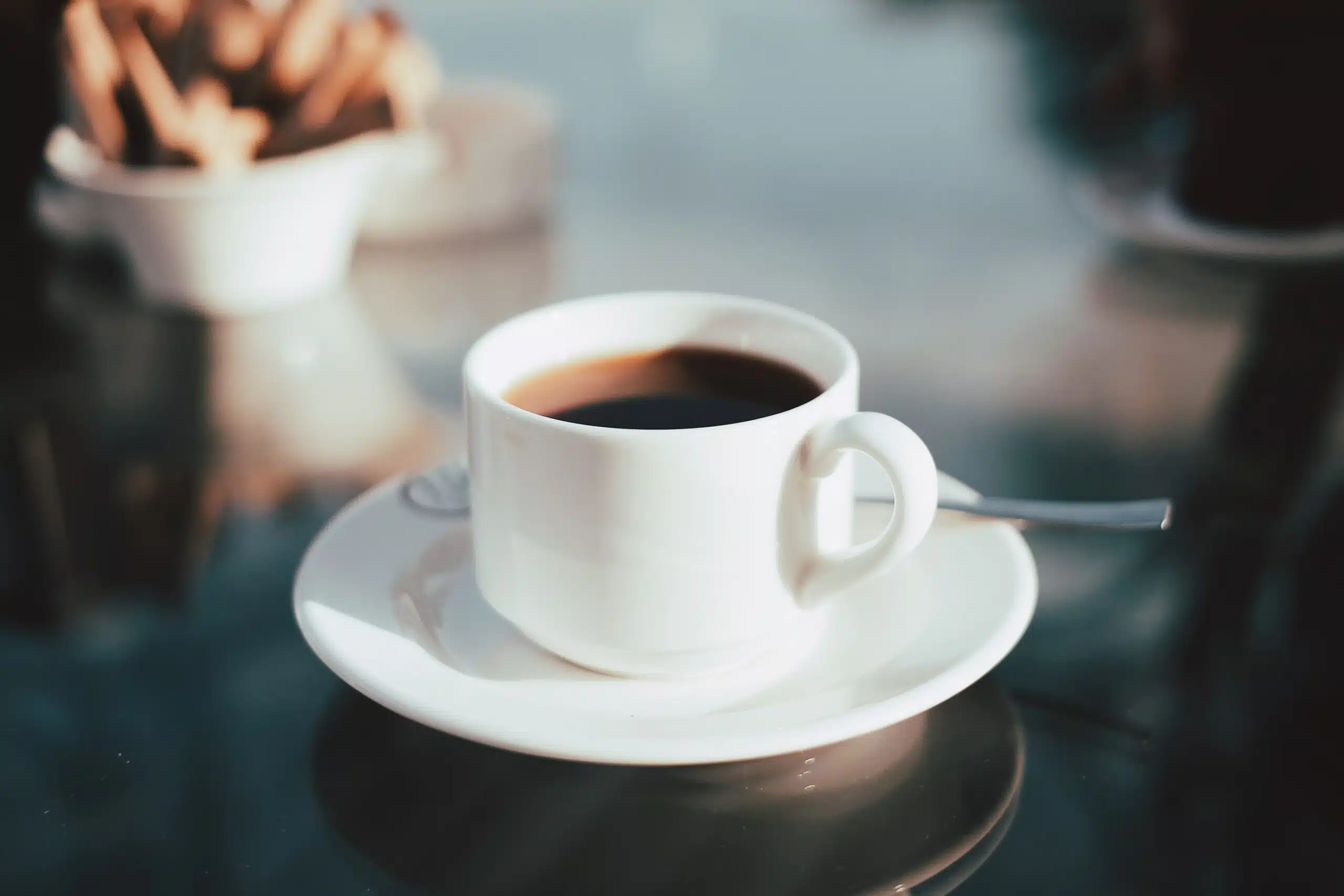
#17 – Coffee was the inspiration behind the first webcam.
The first webcam ever made was used to watch a coffee pot in the computer lab of the University of Cambridge. Researchers there, rather than walking to the coffee maker to see if it was still full, found it easier to simply check the webcam. I’m not going to say they were lazy but…
#17 ½ – An Ethiopian goatherd is often credited with the discovery of coffee.
While this is mainly folklore and can’t really be considered a fact, it is still interesting. Legend has it that a goatherd named Khalid saw his goats eating berries and noticed that it seemed to give them energy (they were jumping all over the place). Interested, he picked some and brought them to a monk. The monk thought it was ridiculous so he threw them in the fire. However, shortly after, he noticed a delicious smell coming from the fire. The monk, realizing that it was the strange berries, quickly gathered them from the fire, crushed them, dissolved the grounds in hot water, and created the most delicious drink in the world. The rest is history.
Sources
Subscribe
Get added to our email list to receive Javataza updates!

©2024 Javataza Coffee LLC | Privacy Policy